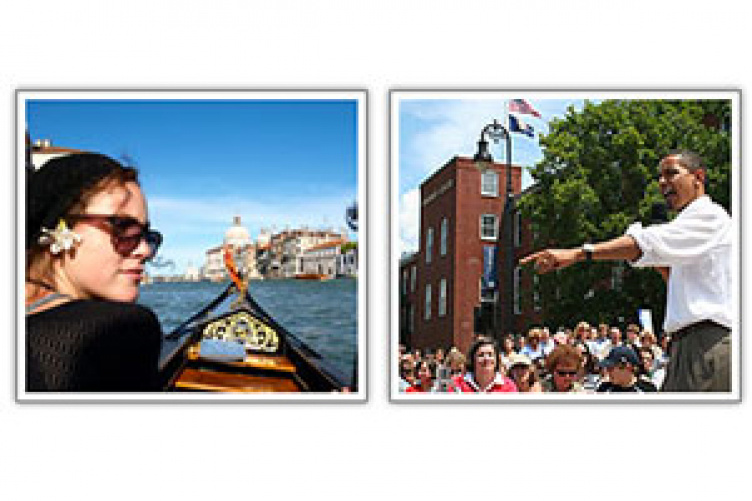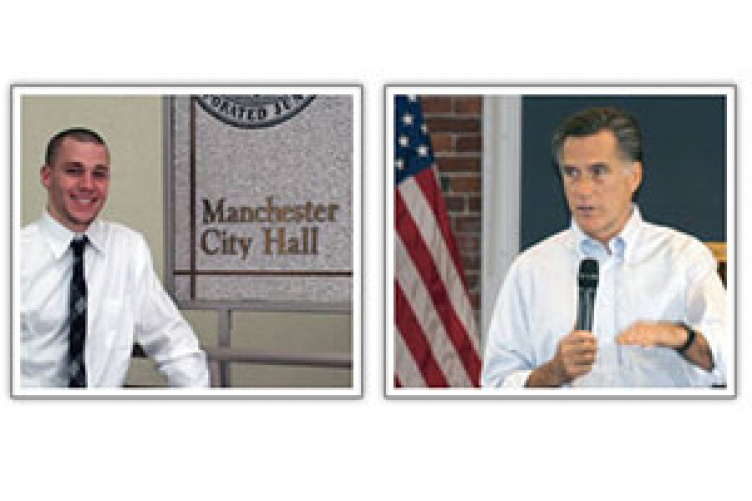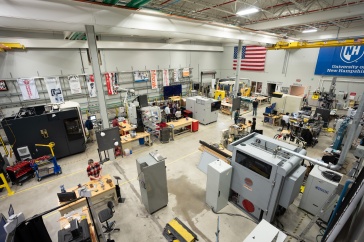With the controversy brewing statewide over the residency of college students affecting their right to vote and pivotal local and national elections imminent, what is it that college students are looking for from their candidates?
While on the surface some may dismiss the student perspective, it would be unwise to do so. After all, this is a group shaped by a deep recession and sluggish recovery; a group that not only will be affected by the lasting repercussions of the economic past, but will be shaping the economic future in years to come.
Professor Michael Contarino, director of the Politics and Society Program at UNH Manchester, agrees that the student perspective is an important one in the 2012 election.
"Young voters were crucial to Obama's victory four years ago, and remain a crucial part of the electorate,” said Contarino. “Nationwide, surveys show that they lean Democratic, but they are less likely to vote than are older voters. "Engagement and turnout among young voters could well determine who the next President will be."
Several UNH Manchester Politics and Society students recently shared their views on this year's election and what they would like to see from the candidates.
Nick Zaricki, 21, of Goffstown, is a senior in the Politics and Society program this year. His concentration in school and in this election cycle has been foreign policy issues.
"What I've seen is that both sides tend to gloss over the bumpy parts," Zaricki said. "They sort of skip the complicated policy issues. … I see candidates running on a lot of polish and not a lot of substance." Zaricki, who is running the Josh Youssef NH State Senate campaign, said he encourages his candidate to, as much as possible, talk substance and specifics. "I think this is a critical election," Zaricki said. "People want to hear candidates' solutions. People are really scared. They want jobs. The Middle East is blowing up and there's crisis with the debt, with education--people want solutions."
Ryan Lessard, 27, of Manchester, said he tends to look at elections differently, particularly in his new role as a reporter with New Hampshire Public Radio. “I try not to be biased by partisan politics and ideology, especially now that I am going to report on some of these candidates."
For Beth Brideau, 23, of Londonderry, who helps coordinator the nonprofit Warmth in the Millyard and is a senior in the Politics and Society program at UNH Manchester, her focus this election is on how much candidates are paying attention to the nonprofits out there.
"From a nonprofit standpoint, it's a very interesting campaign coming up," Brideau said. "I more look to candidates that are going to help society as opposed to take away from it."
She said she sees candidates focusing a lot on health care, the budget and the money, but she said she'd like to see the candidates discussing what they will do to make sure people's needs are being met.
"Which is where the nonprofit side of me comes out," she said. "There are basic needs that are not being met in this country and I want to see what they are going to do to meet those needs."
Kevin Mason, 25, of Salem, who is finishing up his last classes at UNH Manchester, is a dual major in Communication Arts and Politics and Society. He recently published an article with Professors Michael Contarino and Melinda Negron-Gonzales in the journal Global Responsibility to Protect entitled, “The International Criminal Court and Consolidation of the Responsibility to Protect as an International Norm.”
Because of his background, he tends to put this election into a global perspective.
"I've been following very closely for a while now the Arab Spring and the current issues in Libya are fascinating," he said. "The way you see most people talking about it is as a reflection of domestic policies of the President, but sometimes those things are out of our control. I mean there's domestic politics in these countries as well that we tend to forget about. We tend to view it completely as a reaction to things that are happening here at home…Having a broader international focus has kind of opened my eyes to not everything is a reflection of actions here at home."
Mason said what he's learned in the Politics and Society program seems to be closer to what is actually going on politically at home and abroad than what gets portrayed in a stump speech or a sound bite.
This is why, he said, although he'd like to see candidates express this view, he's realistic.
"I'd like to see more of that talk, but I think it's unrealistic politically to expect that," he said. "Politicians have a tendency to say what people want to hear. It's very difficult in a Democracy to tell people that they're not the sole captains of their destiny."
Originally published by:
UNH Manchester
Written by By Melanie Plenda, Freelance Journalist



















































